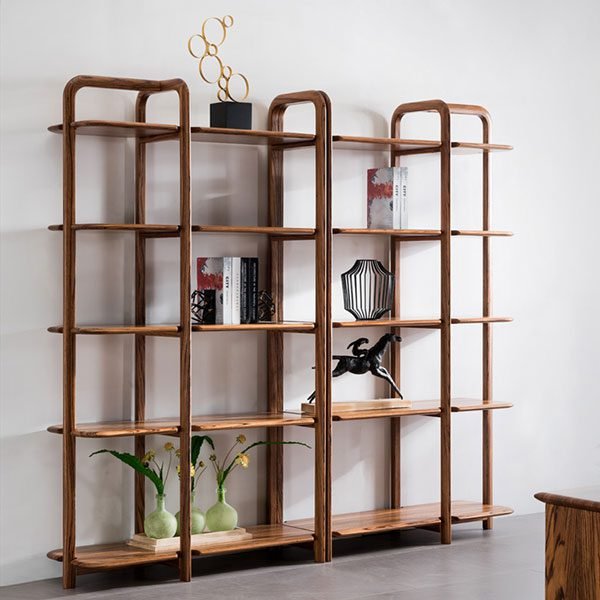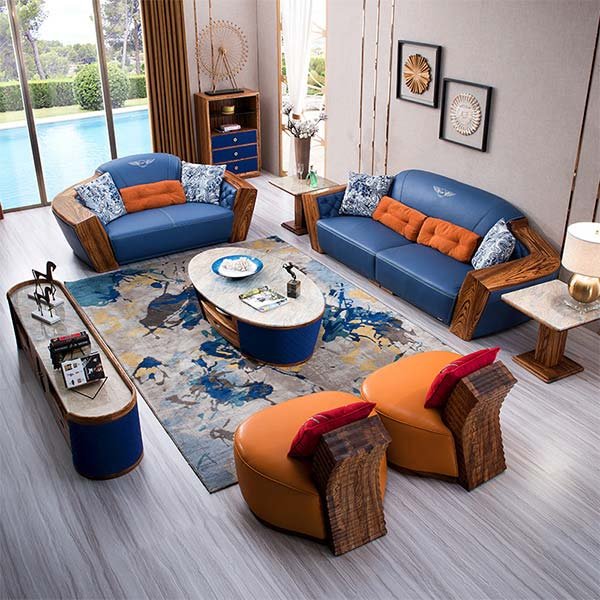“Transforming spaces, enhancing lives.”
The Role of Furniture in Interior Design
The Role of Furniture in Interior Design
Furniture plays a crucial role in interior design, as it not only enhances the aesthetic appeal of a space but also serves functional purposes. From providing comfort to creating a cohesive look, furniture is an essential element in any interior design project.
One of the primary functions of furniture is to provide comfort. Whether it’s a cozy armchair or a plush sofa, furniture allows us to relax and unwind after a long day. Comfortable seating options are especially important in spaces where people gather, such as living rooms or lounges. Without comfortable furniture, these areas would not be as inviting or enjoyable.
In addition to comfort, furniture also helps to define the style and theme of a space. The choice of furniture can greatly impact the overall look and feel of a room. For example, a sleek and modern sofa can create a contemporary vibe, while a vintage-inspired armchair can add a touch of nostalgia. By carefully selecting furniture pieces that align with the desired style, interior designers can create a cohesive and visually appealing space.
Furthermore, furniture serves a practical purpose by providing storage solutions. From bookshelves to cabinets, furniture allows us to keep our belongings organized and easily accessible. This is particularly important in smaller spaces where maximizing storage is essential. By incorporating furniture with built-in storage options, interior designers can help clients make the most of their available space.
Another important aspect of furniture in interior design is its ability to create functional zones within a room. By strategically placing furniture, designers can divide a large space into smaller, more intimate areas. For example, a sofa and coffee table can create a seating area within a larger living room, while a desk and chair can define a workspace in a home office. These functional zones not only make a space more practical but also add visual interest and depth to the overall design.
Moreover, furniture can act as a focal point in a room. A statement piece, such as a unique dining table or an eye-catching accent chair, can draw attention and become the centerpiece of a space. By selecting furniture that stands out, interior designers can create a sense of drama and intrigue within a room.
In conclusion, furniture plays a vital role in interior design. It provides comfort, defines the style and theme of a space, offers storage solutions, creates functional zones, and acts as a focal point. Without furniture, a room would feel empty and incomplete. Therefore, it is crucial for interior designers to carefully consider the selection and placement of furniture in order to create a well-designed and functional space.
How Furniture Enhances Comfort and Functionality
Furniture plays a crucial role in enhancing the comfort and functionality of our living spaces. Whether it’s a cozy sofa, a sturdy dining table, or a spacious wardrobe, furniture not only adds aesthetic appeal to our homes but also serves practical purposes. In this article, we will explore why furniture is important and how it enhances comfort and functionality.
First and foremost, furniture provides us with a comfortable place to sit, relax, and unwind. After a long day at work, there’s nothing better than sinking into a plush armchair or reclining on a comfortable sofa. Good quality furniture with ergonomic designs can help alleviate stress and promote relaxation. Additionally, furniture such as beds and mattresses are essential for a good night’s sleep, ensuring that we wake up refreshed and rejuvenated.
Furthermore, furniture enhances the functionality of our living spaces. A well-designed dining table and chairs create a welcoming space for family meals and gatherings. A spacious desk with ample storage compartments enables us to work efficiently and stay organized. Cabinets, shelves, and wardrobes provide storage solutions, keeping our belongings neatly organized and easily accessible. Without furniture, our living spaces would be cluttered and chaotic, making it difficult to carry out daily activities.
Moreover, furniture contributes to the overall aesthetic appeal of our homes. The right furniture pieces can transform a dull and uninspiring space into a stylish and inviting one. Whether it’s a sleek and modern design or a classic and timeless piece, furniture adds character and personality to our living spaces. It allows us to express our individual style and create a welcoming atmosphere for ourselves and our guests.
In addition to comfort and functionality, furniture also plays a significant role in improving our posture and overall health. Ergonomically designed chairs and desks promote proper body alignment, reducing the risk of back and neck pain. Adjustable height desks allow us to switch between sitting and standing positions, promoting better blood circulation and reducing the negative effects of prolonged sitting. Investing in good quality furniture that prioritizes our health and well-being is essential for maintaining a healthy lifestyle.
In conclusion, furniture is not just a decorative element in our homes; it is an essential component that enhances comfort and functionality. From providing a comfortable place to sit and relax to improving our posture and overall health, furniture plays a crucial role in our daily lives. Additionally, it adds aesthetic appeal to our living spaces, allowing us to create a welcoming and stylish environment. Therefore, investing in good quality furniture that meets our needs and preferences is essential for creating a comfortable and functional home.
The Psychological Impact of Furniture on our Well-being
The Psychological Impact of Furniture on our Well-being
Furniture plays a significant role in our lives, beyond just providing a place to sit or sleep. It has a profound psychological impact on our well-being. The way we arrange and choose our furniture can affect our mood, productivity, and overall mental health. In this article, we will explore the importance of furniture in our lives and how it can influence our psychological well-being.
Firstly, furniture has the power to create a sense of comfort and security. When we come home after a long day, sinking into a cozy armchair or lying on a comfortable bed can instantly make us feel relaxed and at ease. The physical comfort provided by furniture can help reduce stress and anxiety, allowing us to recharge and rejuvenate.
Moreover, furniture can also reflect our personal style and identity. The design, color, and materials of our furniture choices can convey our taste and personality. For example, a minimalist and modern furniture arrangement may suggest a preference for simplicity and order, while a vintage and eclectic mix of furniture may indicate a more creative and adventurous spirit. Surrounding ourselves with furniture that resonates with our personal style can enhance our sense of self and boost our self-esteem.
Furthermore, the arrangement of furniture in a space can greatly impact our mood and productivity. A cluttered and disorganized room can create feelings of chaos and unease, making it difficult to concentrate or relax. On the other hand, a well-organized and thoughtfully arranged space can promote a sense of calm and clarity. By creating a functional and visually pleasing environment, furniture can help improve our focus and efficiency.
In addition, furniture can also influence our social interactions and relationships. The layout of furniture in a living room, for example, can either encourage or discourage conversation and connection. Placing chairs and sofas in a circle or facing each other can create a welcoming and inclusive atmosphere, promoting interaction among family members or guests. On the contrary, a layout that isolates individuals or creates physical barriers can hinder communication and intimacy. By choosing furniture that fosters social interaction, we can strengthen our relationships and create a sense of belonging.
Furthermore, furniture can have a significant impact on our overall well-being by promoting a healthy lifestyle. Ergonomic furniture, such as adjustable chairs and standing desks, can improve our posture and reduce the risk of musculoskeletal problems. Comfortable and supportive mattresses can contribute to a good night’s sleep, which is essential for our physical and mental health. By investing in furniture that prioritizes our well-being, we can take proactive steps towards maintaining a healthy lifestyle.
In conclusion, furniture is not just a functional necessity but also a powerful tool that can influence our psychological well-being. From providing comfort and security to reflecting our personal style, furniture plays a crucial role in shaping our mood, productivity, and social interactions. By choosing and arranging furniture thoughtfully, we can create spaces that promote relaxation, self-expression, and healthy living. So, the next time you consider buying furniture, remember its potential impact on your well-being.
Заключение
Мебель важна, потому что она обеспечивает комфорт, функциональность и эстетическое удовлетворение в нашей жизни. Она помогает нам отдыхать, работать, хранить вещи и создавать уютную атмосферу в наших домах и рабочих пространствах. Мебель также является важным элементом дизайна интерьера, который может отражать наш стиль и индивидуальность. В целом, мебель играет значимую роль в нашей повседневной жизни и влияет на наше благополучие и комфорт.



